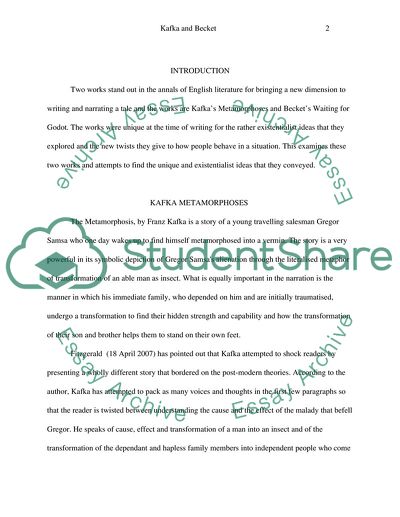Cite this document
(“Not Found (#404) - StudentShare”, n.d.)
Not Found (#404) - StudentShare. Retrieved from https://studentshare.org/literature/1716186-ib-world-literature-essay-in-what-ways-are-existentialist-ideas-expressed-in-both-kafkas-metamorphosis-and-beckets-waiting-for-godot
Not Found (#404) - StudentShare. Retrieved from https://studentshare.org/literature/1716186-ib-world-literature-essay-in-what-ways-are-existentialist-ideas-expressed-in-both-kafkas-metamorphosis-and-beckets-waiting-for-godot
(Not Found (#404) - StudentShare)
Not Found (#404) - StudentShare. https://studentshare.org/literature/1716186-ib-world-literature-essay-in-what-ways-are-existentialist-ideas-expressed-in-both-kafkas-metamorphosis-and-beckets-waiting-for-godot.
Not Found (#404) - StudentShare. https://studentshare.org/literature/1716186-ib-world-literature-essay-in-what-ways-are-existentialist-ideas-expressed-in-both-kafkas-metamorphosis-and-beckets-waiting-for-godot.
“Not Found (#404) - StudentShare”, n.d. https://studentshare.org/literature/1716186-ib-world-literature-essay-in-what-ways-are-existentialist-ideas-expressed-in-both-kafkas-metamorphosis-and-beckets-waiting-for-godot.


